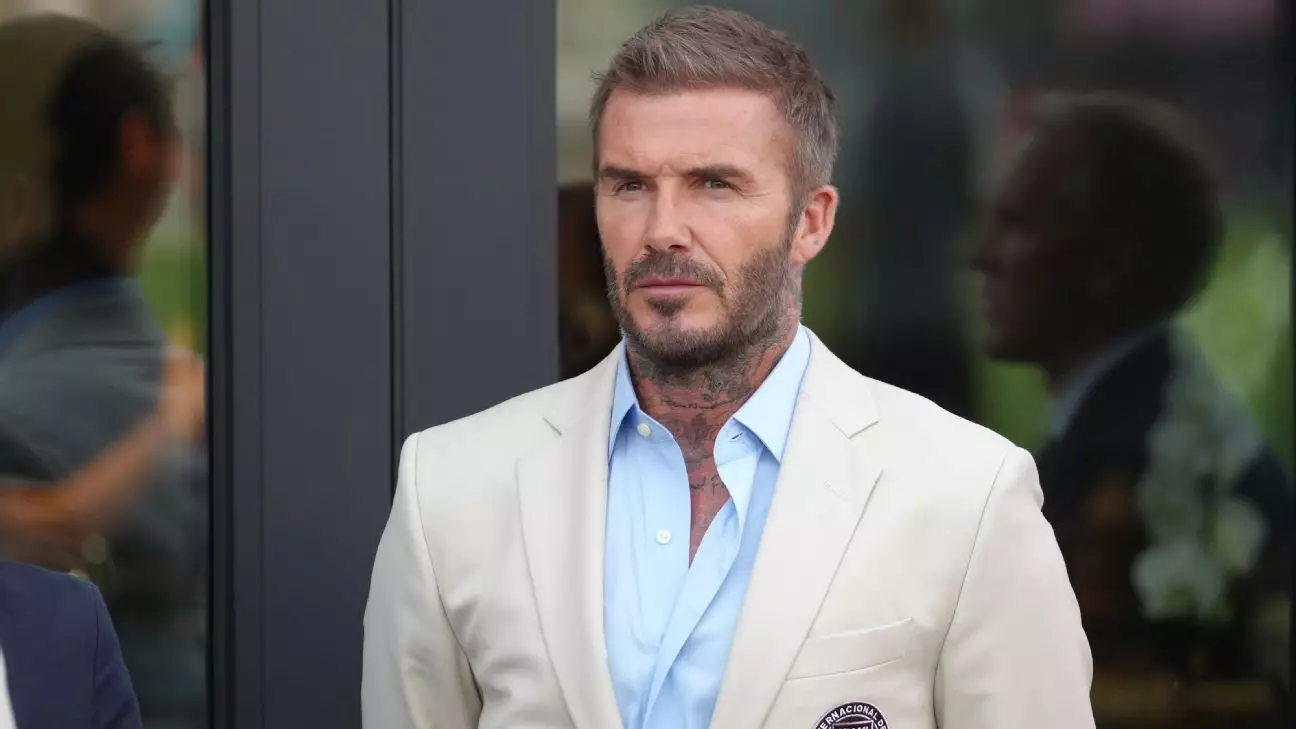Manchester United has long been a beacon of footballing excellence and integrity, but recent events during their postseason tour of Asia have cast a troubling shadow over the venerable club. Legendary figure David Beckham expressed profound disappointment regarding the behavior of many players, something that strikes at the heart of what it means to wear the iconic red jersey. As the club’s struggles mount—culminating in a dismal 15th-place finish in the Premier League—this current generation appears increasingly detached from the very ethos that made Manchester United a global giant.
A Series of Unbecoming Actions
The players’ conduct during the tour has been unsettling to say the least. It began with Amad Diallo, who, seemingly unable to cope with public scrutiny, raised his middle finger to fans outside their hotel in Kuala Lumpur. While Diallo feels justified in his actions, he misses the larger point: a player’s duty extends beyond mere self-defense to embody the club’s values of respect and humility. Alejandro Garnacho’s minor altercation with a fan further fuels this narrative of disrespect and immaturity. These incidents underscore a broader malaise: a squad that seems far removed from the discipline and dedication required at a club of United’s stature.
Beckham’s Call for Accountability
Beckham’s comments resonate deeply as they reflect not just disappointment but a call to action for accountability and introspection within the squad. The former player emphasizes that the badge represents a legacy of commitment and respect; this is not merely a sport, but a community that thrives on the loyalty and passion of its supporters. “You have to represent the badge,” Beckham asserted, and he is unequivocally right. The responsibility of the players goes beyond their athletic prowess; they must embody the values that have been cultivated over generations.
A Forgotten Connection with Fans
An alarming trend is emerging at Manchester United: a growing chasm between the players and their supporters. Beckham underscored the discipline he recalls from his playing days—where mutual respect between players and fans was paramount. In today’s landscape, however, players seem to be operating in a bubble, either unaware of or uninterested in the passion of the supporters who bleed red for the club. Insulting gestures and petty squabbles with fans erode the bond that is so essential to the club’s identity. It is imperative for players to recognize that their fame is a direct result of that connection.
Revisiting the Cultural Legacy
The decline of Manchester United isn’t merely a consequence of lackluster performances on the pitch; it reflects a deeper cultural shift within the club. Beckham’s heartfelt lament echoes the need for a renaissance that aligns today’s players with the legacy of the club. This transformation requires more than just tactical adjustments; it demands a recommitment to the values that have historically defined the club—humility, respect, and a genuine passion for the game.
As Manchester United prepares to navigate its way out of the tumult, lessons from its past should serve as a guiding light. Players must take heed of the words of legends like Beckham, ensuring that they not only play for the badge but become exemplary representatives of it. The tumultuous road ahead requires more than talent; it necessitates character, accountability, and a renewed devotion to the beautiful game.

